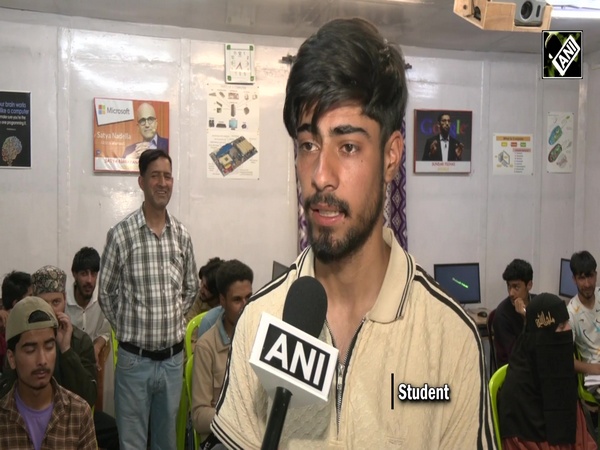China getting concerned about Quad, say analysts
Oct 24, 2020

Beijing [China], October 24 : China is becoming more cautious about Quad after initially dismissing the strategic partnership between US, India, Japan and Australia, analysts have said.
Speaking at a press conference in March 2018, Chinese Foreign Minister Wang Yi referred to the grouping as nothing more than "sea foam on the Pacific and Indian oceans" that would eventually dissipate.
However, two years later, the Quadrilateral Security Dialogue is steadily advancing cooperation between the four countries, with renewed interest in the grouping from India and Australia, which are each experiencing friction in their relations with China, says Laura Zhou in South China Morning Post.
The article quotes Wu Shichun, president of China's National Institute for South China Sea Studies, a government-backed think tank, as saying that Quad has recently become more focused on security with China as the potential rival.
"At the beginning, the [Quad] mechanism was not only about security, it also had an economic dimension in the Indo-Pacific region. But recently it has become more and more focused on security, with China as the potential rival," it quotes Wu as saying.
Laura further writes that Australia has accepted India's invitation to join next month's Malabar naval exercise, along with the US and Japan, which will be the first time the four countries will hold a joint military exercise of this size, which will likely dismay Beijing.
Lavina Lee, a senior lecturer in international relations at Macquarie University in Sydney, said the inclusion of Australia, which was currently at loggerheads with Beijing over trade, spy accusations and the origins of the COVID-19 pandemic, certainly should make China less dismissive of the Quad.
Speaking on India's role in the Quad, Lee said New Delhi has realised that "China will continue to push to change the status quo on its border with India, and previous attempts by India to smooth over relations have not changed this aim".
Last month, China's deputy foreign minister Luo Zhaohui had described the alliance as "an anti-China frontline" or "mini NATO", which reflected America's "cold war mentality".
This comes at a time when China is facing global ire for trampling democracy in Hong Kong, human rights violations in Xinjiang, alleged breach of internet privacy in various countries and attempting to unilaterally change the status quo at the India China border violating all bilateral agreements and protocols.
Beijing is also displaying strong-arm tactics in the South China Sea and is being blamed by some quarters for the spread of COVID-19 globally which originated in its labs in Wuhan. US President Donald Trump has referred to COVID-19 as "Chinese virus".
The US had also imposed restrictions on Chinese diplomats in the country. India has also banned several Chinese apps and popular game Pubg and Indian Railways has cancelled Chinese investment.


















